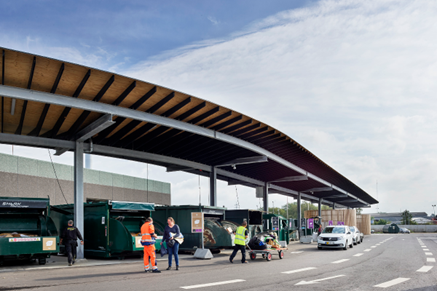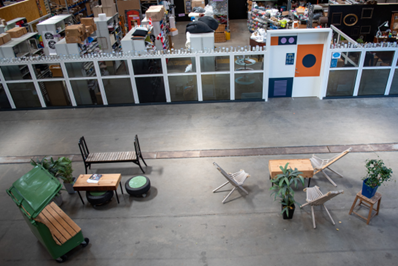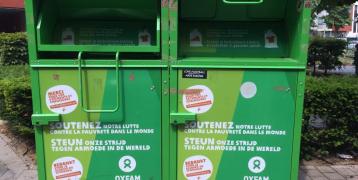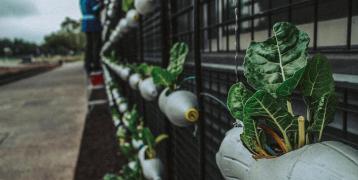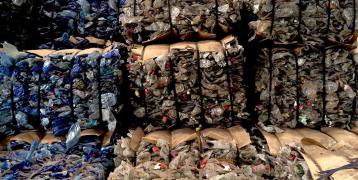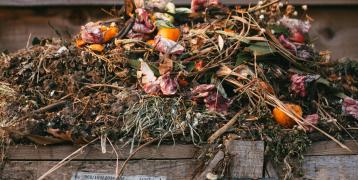Kolding's shift towards circular economy
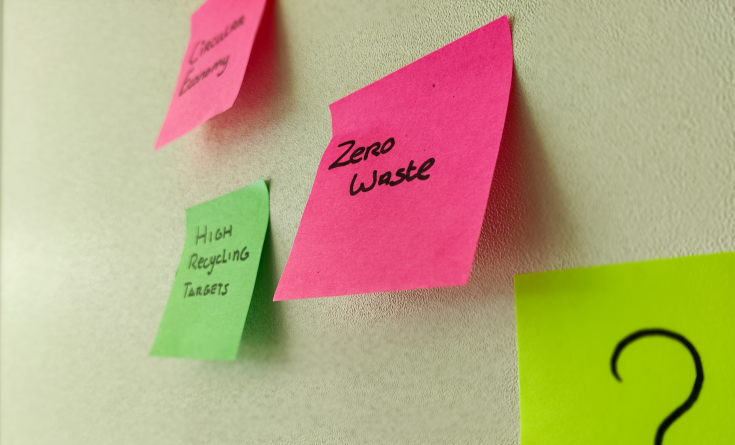
On average, each European citizen generates five tonnes of waste each year, less than 40% of which has been recycled in 2018. Apart from setting higher recycling targets, the European Union has introduced the Circular Economy Action Plan, a way towards more resource-efficient waste management.
It covers all product life cycle phases, from recyclable design, the preference of repair and reuse, separate collection, recycling and the use of recycled materials in new products. Prevention combined with the use of waste as a resource can lead to a considerably more circular system, job creation and a greener economy.
Denmark has been recognised as one of the best-performing countries when it comes to diverting waste from landfills.
The country has a variety of waste regulations, including:
- a ban on landfilling waste that can be incinerated,
- compulsory pre-demolition targets,
- economic instruments (landfill, incineration and packaging tax,Extended Producer responsibility (EPR) schemes or a deposit return system for beverage containers),
- innovation funding and green public procurement,
- eco-label promotion
Despite all this, the country has significant gaps in municipal waste recycling. According to OECD “Heavy public investment in incineration for municipal waste treatment has created a path dependency featuring high levels of municipal waste generation and limited domestic recycling infrastructure.” To address the issue, Denmark has set a target to recycle 50% of household waste by 2022 and published a Waste Prevention Strategy.
The municipality of Kolding, located in the southeast of Denmark, is the seventh largest Danish city and home to an important port. Moreover, Kolding aspires to be the ‘national champion in circular economy’, setting high recycling targets for municipal solid waste and introducing services such as reuse and repair centres.
“The waste management sector has exploded in the past two years, receiving a lot of political focus and interest,” says Martin Pedersen Stub, Circular Economy Project Leader at the municipality of Kolding.
To boost their waste management goals, Kolding has joined the SMART WASTE project, to evaluate the extent to which their current policies promote successful waste management innovation and to understand the real impact innovative policy measures have on the effectiveness and sustainability of waste management procedures.
Innovation in waste management policies
As part of its activities within the SMART WASTE project, the Municipality of Kolding evaluated its Waste Management Plan.
Three key areas in need of improvement were identified: design and stakeholder involvement, project execution and evaluation framework, and focus on circular economy. The results are now being used in preparation of the new Waste Management Plan.
The policy change included the development of a ‘Project Kit’ intended to balance project planning, development and evaluation, while simultaneously improving stakeholder engagement.
The Kit provides a set of tools to guarantee unified standards for aspects such as target actors’ involvement, success criteria and evaluation plans, communication and finance. It defines standard procedures, e.g. the creation of working groups/Steering Committees to ensure regular discussion and monitoring of ongoing projects.
The traditional, complex management models used by the municipality are no longer suitable for contemporary innovative and socially-oriented projects. The kit provides a simple, universally applicable framework and a set of processes that are easy to understand even for people with no or limited project management experience.
Qualitative evaluation became one of the cornerstones of the new approach. “Constant evaluation allows to mitigate mistakes when they happen and makes project execution much easier,” explains Pedersen Stub.
The path of least resistance
The focus on circular economy has significantly increased the number of projects in the waste department.
These include projects ranging from environmental station expansion, circular economy in procurement, a thrift store, a recycling shop, reuse of bricks in construction, household collection of food and beverage cartons, a new hazardous waste disposal system, to projects focused on education and knowledge sharing.
Agile project management was an inspiration to Kolding’s newfound approach to managing the varied project portfolio, as was the increased focus on qualitative data collection and evaluation through the engagement of citizens and other stakeholders.
This new tool is already showing results, but not everyone in the department was persuaded that a new approach was necessary early on. According to Pedersen Stub, “there was resistance at first and it took a lot of discussions. The book The Art of War says that a good soldier is like water, shapes its course according to the nature of the ground over which it flows, taking the path of least resistance to reach his goal. So that is what we did, we implemented it in some places to test it and used the feedback we got to improve it and make it more relevant to the users. We are in a transition phase now, not all projects use the kit, but the Project Kit is now used in the revision of the current Waste Management Plan and will also be used in the creation of new plan and related projects in 2024 and onward”.
The Project Kit might prove useful to other municipalities around Europe who are thinking about improving their project management. “They should ask themselves the critical question: Are we doing the right things the right way? Or are we doing this just because this is what we have always done?” concludes Pedersen Stub.
Additional resources
For more information, you can take a look at the 'Project Kit' , the Circular economy action plan, the good practice of incorporating a circular economy strategy, or scroll through our related publications below.

